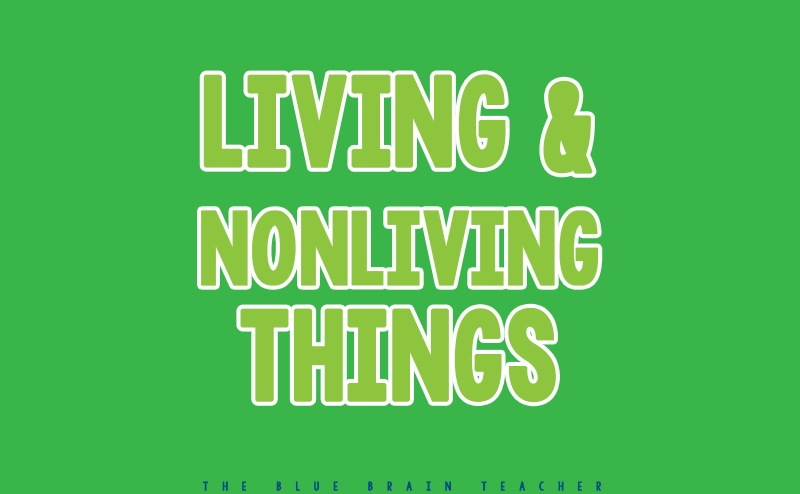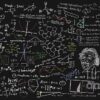Living and Non-Living Things
Definition
Living Things: Organisms that have life. They grow, reproduce, respond to stimuli, and carry out metabolic processes.
Non-Living Things: Objects that do not possess life. They do not grow, reproduce, or carry out any life processes.
Differences Between Living and Non-Living Things
| Feature | Living Things | Non-Living Things |
|---|---|---|
| Growth | Grow in size and complexity | Do not grow |
| Reproduction | Can reproduce (asexually or sexually) | Cannot reproduce |
| Metabolism | Carry out metabolic processes (e.g., respiration, digestion) | Do not undergo metabolic processes |
| Response to Stimuli | Respond to environmental changes (e.g., light, heat) | Do not respond to stimuli |
| Cellular Structure | Made up of cells (unicellular or multicellular) | Not made of cells |
| Adaptation | Adapt to changes in the environment | Cannot adapt |
Examples of Living and Non-Living Things
Living Things
- Plants: Trees, flowers, grass
- Animals: Dogs, cats, birds
- Humans: All human beings
- Microorganisms: Bacteria, fungi, amoebas
Non-Living Things
- Natural Objects: Rocks, water, air
- Artificial Objects: Cars, buildings, books
- Substances: Metal, plastic, glass
Importance of Living and Non-Living Things
Importance of Living Things
- Ecosystem Balance: Living organisms play critical roles in ecosystems, contributing to biodiversity and stability.
- Food Chain: Living things are essential components of food chains, providing energy and nutrients to one another.
- Oxygen Production: Plants produce oxygen through photosynthesis, which is vital for animal and human life.
- Pollination: Many living organisms, such as bees, are crucial for pollinating plants, which is necessary for food production.
Importance of Non-Living Things
- Natural Resources: Non-living things like water, minerals, and fossil fuels are essential for human survival and economic development.
- Infrastructure: Non-living materials are used to build homes, roads, and other structures that facilitate daily life.
- Tools and Technology: Non-living objects, such as computers and machinery, enhance productivity and improve quality of life.
- Natural Cycles: Elements like air and water play significant roles in natural cycles, such as the water cycle and carbon cycle.
Conclusion
Both living and non-living things are essential for maintaining life on Earth. Living things interact with one another and their environment, contributing to ecological balance. Non-living things provide the resources and materials necessary for survival and development. Understanding the differences and importance of each helps us appreciate the complexity of life and the environment.
SOURCE: SIR LEO ♌️
- The Digital Dialects: How Programming Languages Shape Our Modern WorldPost Views: 48 By Bright Atsu Aditse The era of a one-language-fits-all approach is long gone. The modern philosophy is “using the right tool for the right job.” This specialization allows for greater efficiency, performance, and developer productivity. Let’s explore how these languages are applied across the key domains of modern technology. 1. The Web:…
- The Dark Side of Human Rights: Freedom or a Gateway to Spiritual Corruption?Post Views: 37 By Michael Nyavi (Sir Michael) Human rights, as enshrined in international law, were originally meant to protect the dignity and freedom of every human being. The Universal Declaration of Human Rights (UDHR) of 1948 was drafted to prevent oppression and injustice after the horrors of World War II. However, in recent decades,…
- The Myth of Meritocracy in Ghana: A Critical ExaminationPost Views: 147 By Ametepe Michael “Meritocracy! The Modern Norm” Meritocracy is a political system of governance in which rewards, opportunities, and positions of power are distributed based on individual talents, efforts, and achievements, rather than on the basis of wealth, privilege, or other factors. In a meritocratic system, individuals are judged on…
- The Role of the Church in Combating Corruption: The Church Cannot Remain MutePost Views: 48 By Michael Nyavi (Sir Michael) Introduction Corruption has become a cankerworm eating deep into the fabric of many nations, including Ghana. It weakens trust, destroys institutions, and deepens poverty. In a country where over 70% of the population identify as Christians, the Church cannot remain silent. With its moral authority and wide…
- Changing the Script: How Applied Behaviour Analysis (ABA) Is Empowering Learners and Transforming ClassroomsPost Views: 51 By James Attah Ansah NB: First published with Modern Ghana on 22nd September 2025 At first, all Kormi did was scream. He screamed when he was asked to hold a pencil. He screamed when other children got too close. He screamed when the teacher smiled at him. At five years old, he…








